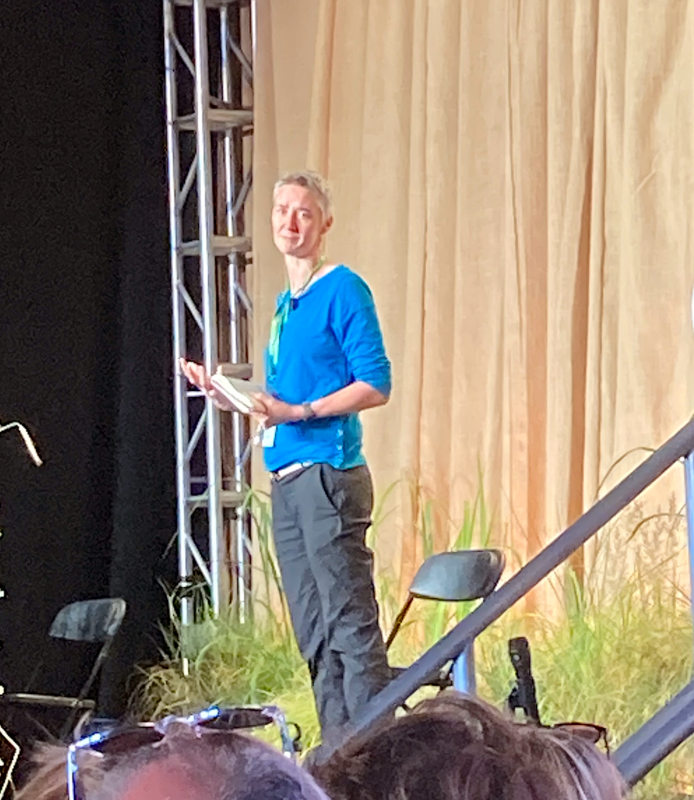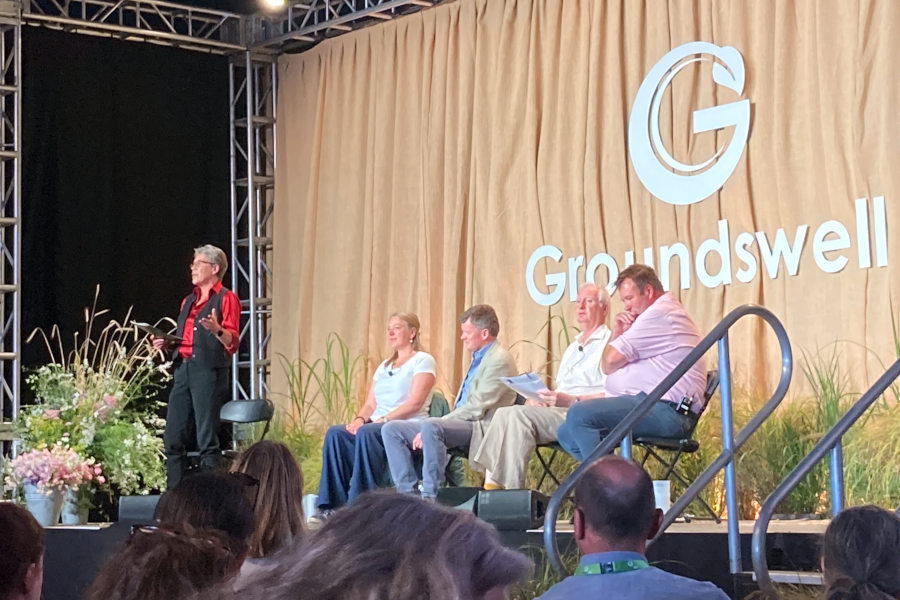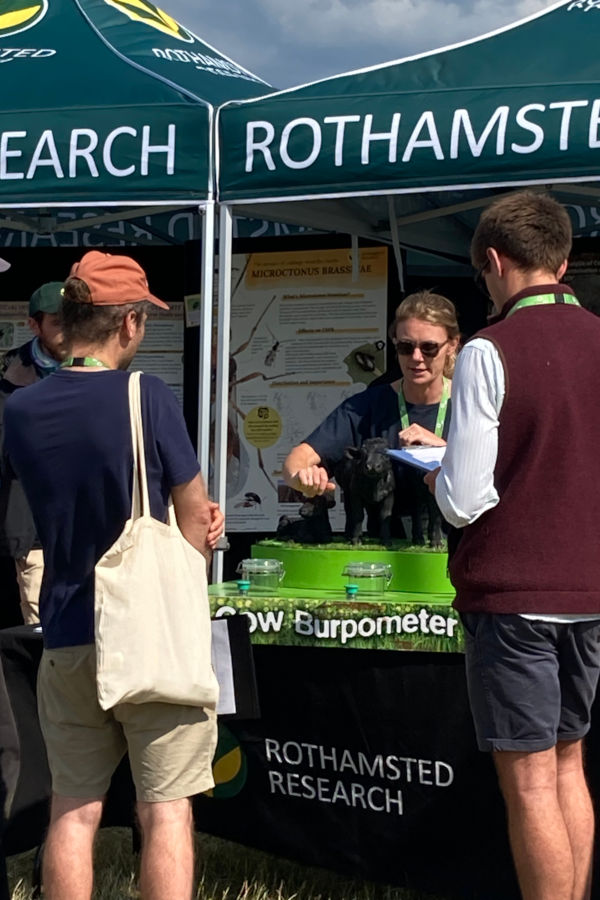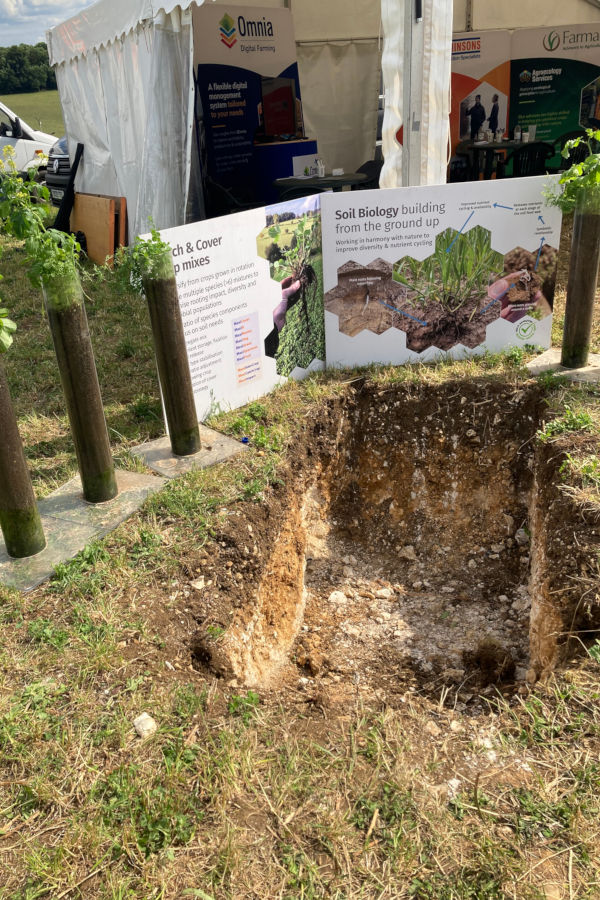[ad_1]
“Producing for food, nature and climate” was the phrase frequently used by Janet Hughes of Defra as she gave a pragmatic presentation to a packed hall at Groundswell 2023. Once a fringe event, the topics discussed at the regenerative farming conference have become increasingly mainstream with a greater consensus growing over key issues.
Flex and adapt approach
Janet was keen to reassure farmers, and others in the Big Top, that a less prescriptive approach will be adopted with the new Environment Land Management schemes (ELMs) – offering greater flexibility to pick and mix and to create a tailored scheme that works for the farm.
In particular, she talked about the Countryside Stewardship Scheme, reiterating that this is to continue as it has been improved with farmer input and is now considered efficient. Defra aims to deliver its outcomes through this scheme.
For the Sustainable Farming Incentive, the learning points from over 4000 farm trials are being incorporated to expand the scope. The standards will not be ‘bundled’ as first devised but instead offered as a portfolio for farmers and their advisers to select from.

She says: “We are testing and learning as we go, balancing the need for ‘certainty’ that farmers require for planning with a ‘flex and adapt’ approach to make the schemes good and fit for purpose.” Her vision is to develop a farming system with feedback loops that delivers productivity and prosperity will delivering on food production and the environment.
She reassured the audience that 530 schemes had been accepted for the higher tier Countryside Stewardship and the standard had been good. There are plans to increase access and also to offer a hybrid approach to allow smaller projects within a wider mid tier scheme to be eligible for support under the higher tier.
She also acknowledged that there was a plethora of grants and schemes and Defra is looking at ways to make it easier to find the relevant support and make an application.
Growing consensus
The next session looked at how there is a growing consensus over the direction of travel for farming.
The Food, Farming and Nature Consensus had evolved from discussions at the Oxford Farming Conference, it aims to bring all stakeholders together to find common ground to tackle systemic issues.
All signatories to the pledge agreed upon three shared principles:
- A healthy natural environment underpins food security.
- Farming has a vital role in producing food but also in tackling the nature, climate and health crisis
- Diversity in all its forms will enable resilience and innovation in the face of growing economic and environmental challenges.
After a scene-setting by Katie-Jo Luxton, RSPB Director for Global Conservation, three political figures – Rt Hon Lord Benyon (Con), Daniel Zeichner MP (Lab) and Stuart Roberts (Lib Dem) – gave their views of the way forward, and again there was a consensus, reassuring those in the room that whatever the outcome in the general election, the road towards Net Zero will accelerate not deviate.
Daniel mentioned at a recent Agri-TechE event that discussion had been around establishing baselines for measuring progress and to ensure that the community is doing the right things in the best way. He stressed the importance of a Landuse Framework that would build consensus on how land use is optimised.

He also stressed the need for trade deals that did not allow UK farmers striving for high standards in animal welfare and environmental stewardship to be undercut by overseas competitors operating in a less regulated landscape.
Measure to manage
A number of Agri-TechE members were exhibiting at Groundswell, including:



Source link


